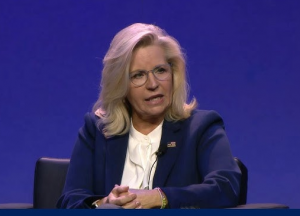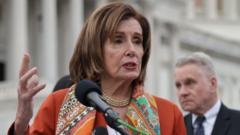In an interview, Senator John Fetterman openly criticized former House Speaker Nancy Pelosi for her role in the Democratic Party's losses in the 2024 elections. He emphasized the need for a change in leadership and strategies to better connect with voters, indicating internal discontent among Democrats.
Fetterman Critiques Democratic Leadership Amid Election Losses

Fetterman Critiques Democratic Leadership Amid Election Losses
Senator John Fetterman's candid remarks reveal frustrations within the Democratic Party, particularly towards Nancy Pelosi's leadership, following significant electoral setbacks.
Senator John Fetterman of Pennsylvania has recently shared a critique that resonates with many within the Democratic Party, albeit one that few have felt comfortable articulating publicly. In an interview with Politico, Fetterman specifically targeted former House Speaker Nancy Pelosi, attributing much of the party's notable defeats in the 2024 elections to her leadership styles and strategies.
Fetterman was probing the question of whether President Joe Biden should have considered stepping back from his candidacy following an underwhelming debate performance against President-elect Donald Trump. Fetterman did not shy away from expressing his frustration, indicating that the party's internal dynamics and leadership have contributed to distancing itself from voters. “Scolding harder or clutching the pearls harder, that’s never going to work for Democrats,” Fetterman articulated, stressing that a shift in strategy is imperative.
He characterized Pelosi as the “godmother” and “enforcer” within the party, suggesting that her methods and the subsequent tendency to blame President Biden for election failures were damaging to party unity. This criticism reveals an increasing tension within the Democratic Party regarding accountability and the necessity for rejuvenated leadership to effectively engage with constituents.
As the Democratic Party seeks to regain its footing after a trying electoral cycle, Fetterman’s statements could signal an urgent call for reflection and reform. It remains uncertain whether these sentiments will translate into meaningful shifts in leadership or tactical approaches. However, the growing pressure on the party to confront its internal dilemmas appears undeniable as it prepares for future elections.





















